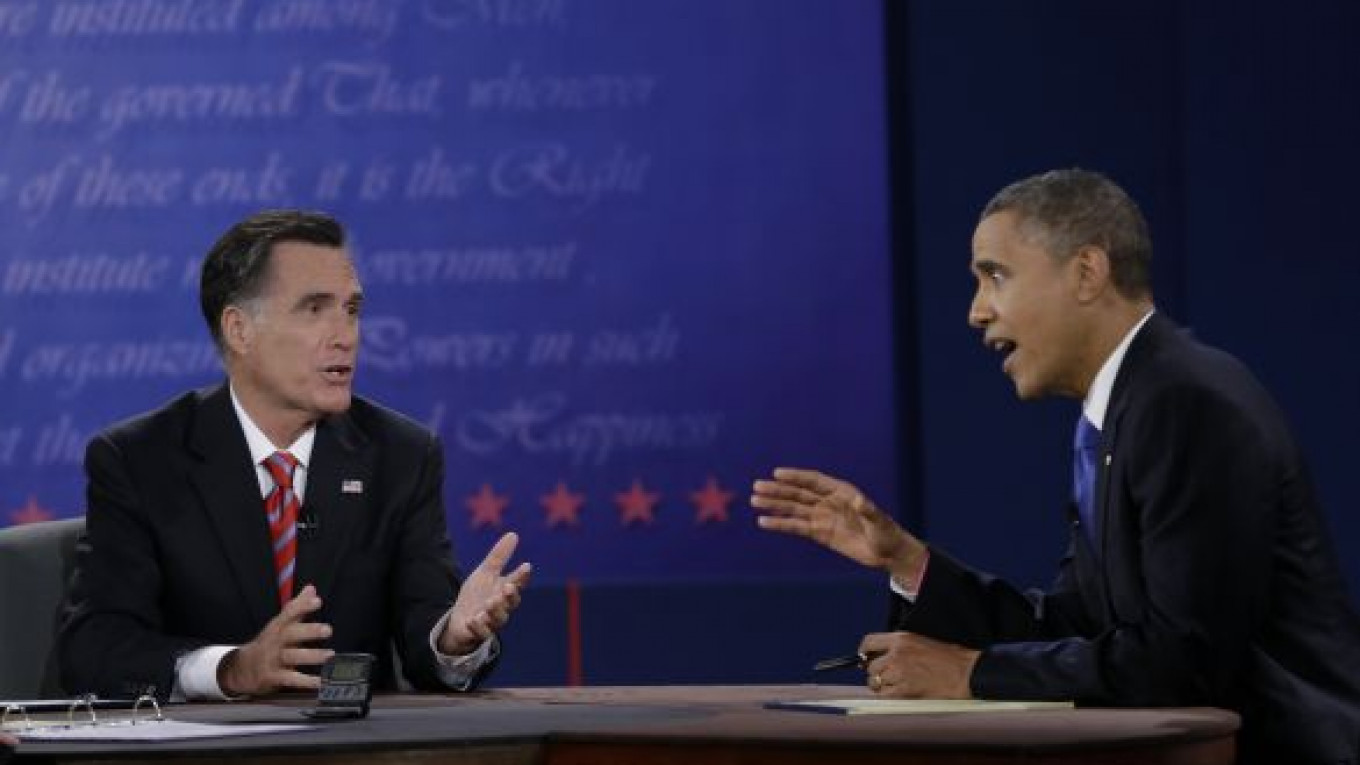U.S. President Barack Obama attacked Republican rival Mitt Romney's stance on Russia during a debate dedicated to foreign policy, accusing him of trying to drag the country back into the Cold War.
Obama, speaking Monday night in Boca Raton, Florida, just two weeks before the Nov. 6 election, criticized Romney for describing Russia as "without question our No. 1 geopolitical foe" during a CNN interview in March.
"I'm glad that you recognize that al-Qaida is a threat, because a few months ago when you were asked what's the biggest geopolitical threat facing America, you said Russia, not al-Qaida," Obama said, according to a transcript of the debate on the ABC News website.
"The 1980s, they're now calling to ask for their foreign policy back," he said.
Romney, in turn, accused Obama of being too lenient toward President Vladimir Putin and appeared to misquote Obama in connection to a conversation that he had with then-President Dmitry Medvedev in Seoul in March. Obama was overheard on an open mic asking Medvedev to tell Putin, who had been elected president a few weeks earlier, that he needed "space" on missile defense.
"On all these issues, but particularly missile defense, this, this can be solved, but it's important for him to give me space," Obama said, adding a few moments later: "This is my last election. After my election, I have more flexibility."
"Russia does continue to battle us in the UN time and time again," Romney said at the debate. "I have clear eyes on this. I'm not going to wear rose-colored glasses when it comes to Russia, or Mr. Putin. And I'm certainly not going to say to him, 'I'll give you more flexibility after the election.'"
Romney said, if elected, he would stand up to Putin immediately. "After the election, he'll get more backbone," he said.
Obama considers the New START arms treaty signed in 2010 and resurgent ties with Russia, which hit post-Soviet lows during George W. Bush's time in office, as a hallmark of his presidency.
The "reset" in relations, however, has cooled down in recent months, with the Kremlin accusing the U.S. of supporting the political opposition, closing USAID, and ending the Nunn-Lugar initiative to secure and dismantle weapons of mass destruction.
Related articles:
A Message from The Moscow Times:
Dear readers,
We are facing unprecedented challenges. Russia's Prosecutor General's Office has designated The Moscow Times as an "undesirable" organization, criminalizing our work and putting our staff at risk of prosecution. This follows our earlier unjust labeling as a "foreign agent."
These actions are direct attempts to silence independent journalism in Russia. The authorities claim our work "discredits the decisions of the Russian leadership." We see things differently: we strive to provide accurate, unbiased reporting on Russia.
We, the journalists of The Moscow Times, refuse to be silenced. But to continue our work, we need your help.
Your support, no matter how small, makes a world of difference. If you can, please support us monthly starting from just $2. It's quick to set up, and every contribution makes a significant impact.
By supporting The Moscow Times, you're defending open, independent journalism in the face of repression. Thank you for standing with us.
Remind me later.


